Fox News Flash top headlines for August 24
Fox News Flash top headlines are here. Check out what's clicking on Foxnews.com.
Members of the Catholic Church in the U.S. maintain a disproportionally high number of powerful government offices — including the White House — but U.S. Catholics' adherence to official church teachings is weaker than ever, according to the Pew Research Center.
Bishop Robert Barron, a controversial figure on both the secular left and right for his nonpartisan ethical advice and largely apolitical social advocacy, says abortion is at the heart of the struggle.
Barron, prelate of the Dioceses of Winona-Rochester, 62, is the most widely-followed online Catholic cleric in the country aside Pope Francis himself.
"I think a lot of that comes back to the abortion issue. I mean, it is the most pressing moral issue of our time," Barron said in an exclusive interview with Fox News Digital. "There's a split [between] Catholics and on Catholic teaching among Catholics. And you have some, you know, who take this indefensible position."
POPE DERIDES BIDEN'S ABORTION VIEWS, CATHOLIC SELF-IDENTITY AS 'INCOHERENCE'
While his episcopal office concerns his parishes in Minnesota — where he is already widely known — his public influence stretches around the world via his books, videos, radio shows and documentaries with his Word on Fire ministries. The bishop sat down with Fox News Digital for an interview covering a wide range of topics, with President Biden's religious affiliation a prominent issue for discussion.
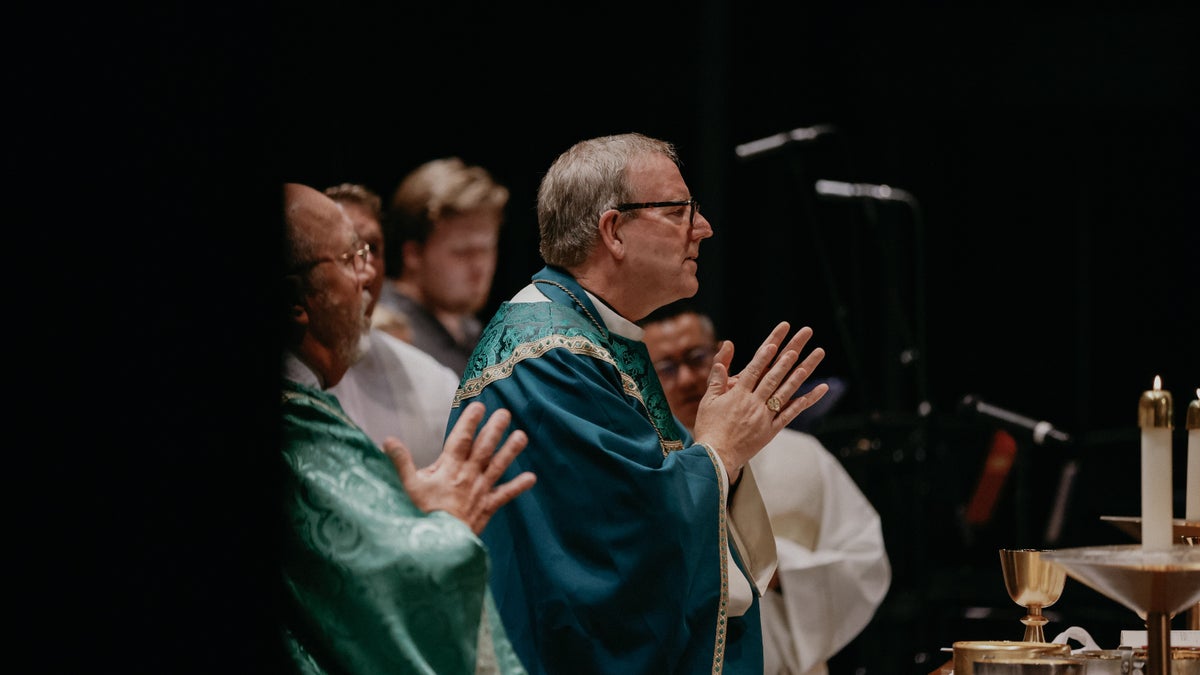
Bishop Robert Barron of the Diocese of Rochester, Minnesota (Word on Fire Ministries)
Barron compared the abortion issue to other social justice causes from history that dominated U.S. consciousness, specifically the history of slavery in the country and the mid-19th century push for civil rights.
Despite the dramatic difference between Biden's views and Catholic teaching, Barron says he does not doubt the president truly believes in the faith. However, the bishop called Biden's support for expanding abortion "repugnant" and said the president was acting in grave error.
"What bothers me about Biden — I don't doubt he's a serious Catholic at all. And I think he does feel his faith. I think he practices faith," the bishop said. "But on this issue, what he's doing is repugnant. Because he's not just barely tolerating abortion — saying let's try to set some limits to it. He's aggressively trying to expand access to it."
The Catholic Church believes that, once baptized and confirmed in the faith, a member of the church is Catholic forever — regardless of moral conduct or even apostasy.
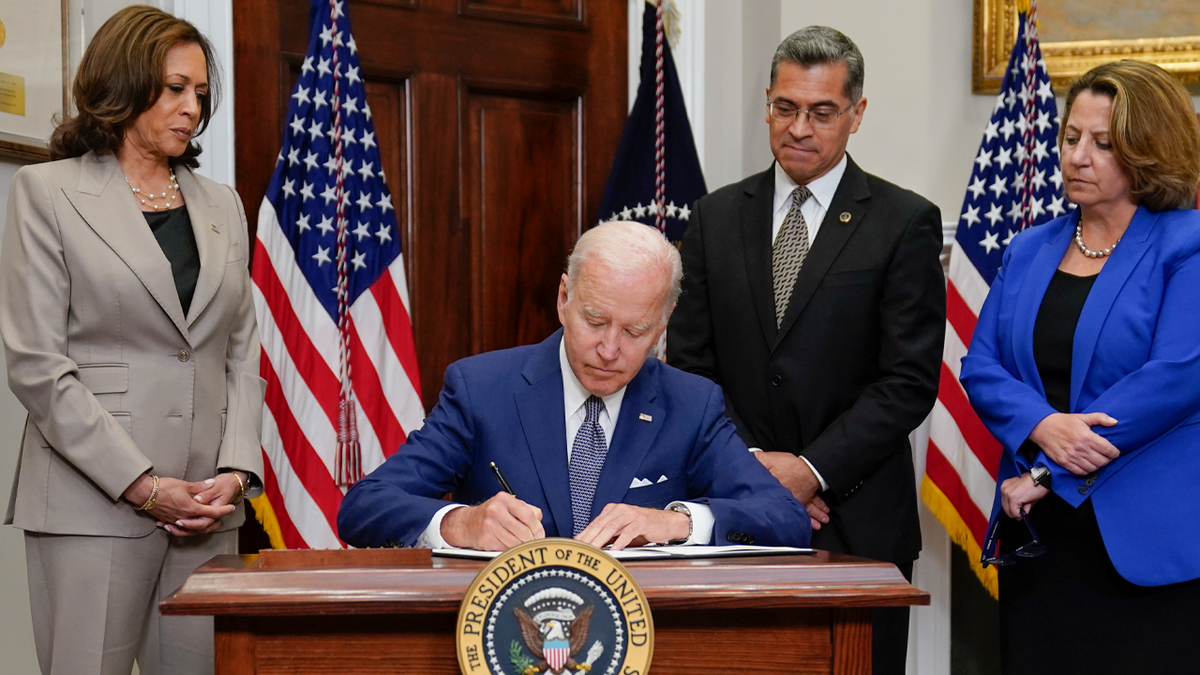
President Biden signs an executive order on abortion access during an event in the Roosevelt Room of the White House, Friday, July 8, 2022, in Washington, D.C. (AP)
In the case of serious error or egregious sin, a bishop can deny a member of his diocese the Eucharist — a Catholic sacrament believed to be the literal body and blood of Christ. A bishop can also, in the most severe cases, excommunicate a member of their diocese, which puts the believer outside the community of the church until the error has been made good.
Excommunication is a rare occurrence, but Catholic prelates across the U.S. have floated the idea of denying the Eucharist to pro-choice lawmakers — including Biden and House Speaker Nancy Pelosi.
On the 2020 campaign trail, Biden and his wife attended Mass at the St. Anthony Catholic Church in Florence during a campaign stop, but he was denied Holy Communion after the pastor took issue with Biden's support of a woman's right to an abortion.
"I think that priest had a good point," Cardinal Timothy Dolan of New York told Fox News at the time. "You are publicly at odds with an issue of substance — critical substance. We're talking about life and death in the church. You personally, out of integrity should not approach Holy Communion — because that implies that you're in union with all the church beliefs."
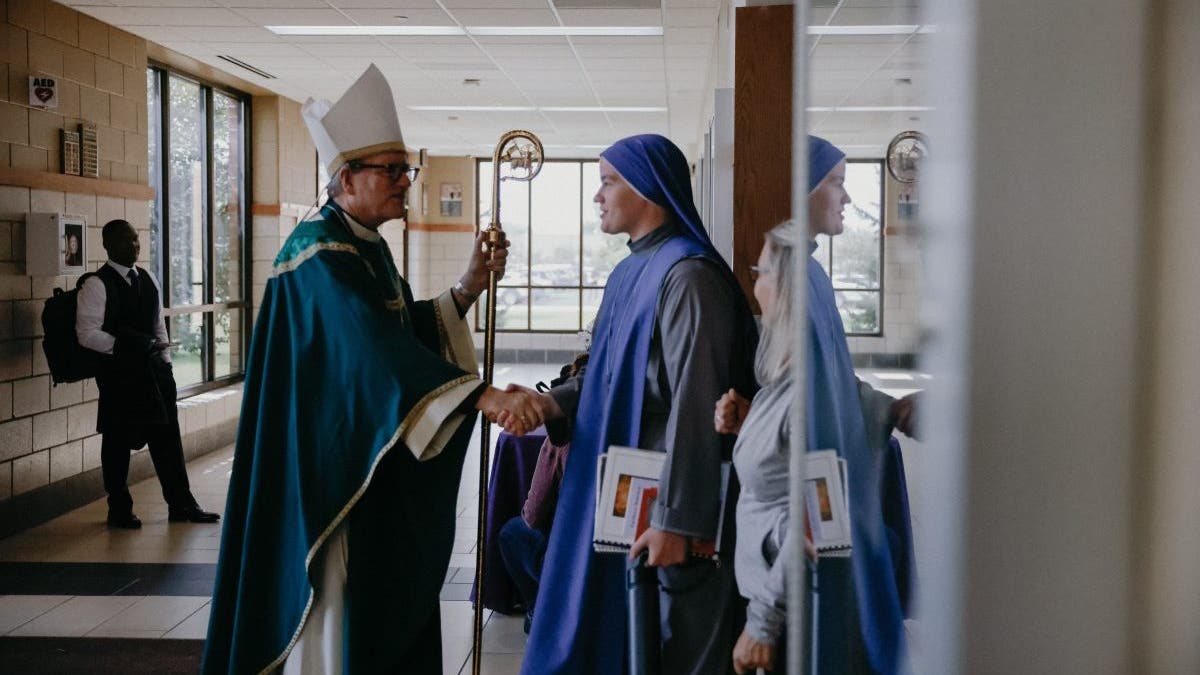
Bishop Robert Barron of the Diocese of Winona-Rochester, Minnesota. (Word on Fire Ministries)
Earlier this year, San Francisco Archbishop Salvatore Cordileone announced Pelosi was barred from receiving Communion in his Californian diocese, where she resides.
ATLANTIC OP-ED CLAIMS CATHOLIC ROSARY HAS BECOME 'AN EXTREMIST SYMBOL'
When asked about Biden's religion versus his personal beliefs, the pope dismissed the president as "incoherent," but said nothing of a ban on his receiving the Eucharist.
"I leave it to [President Biden's] conscience and that he speaks to his bishop, his pastor, his parish priest about that incoherence," the pope remarked. Barron applauded Pope Francis's statement.
"Now, the next question is, all right, then, what in your prudential judgment, is the best thing to do to address that? I think it's pretty plain," Barron said. "He doesn't think denying communion is a good thing. That's pretty plain from Pope Francis. So, you know, he's the pope and that's his prudential judgment."
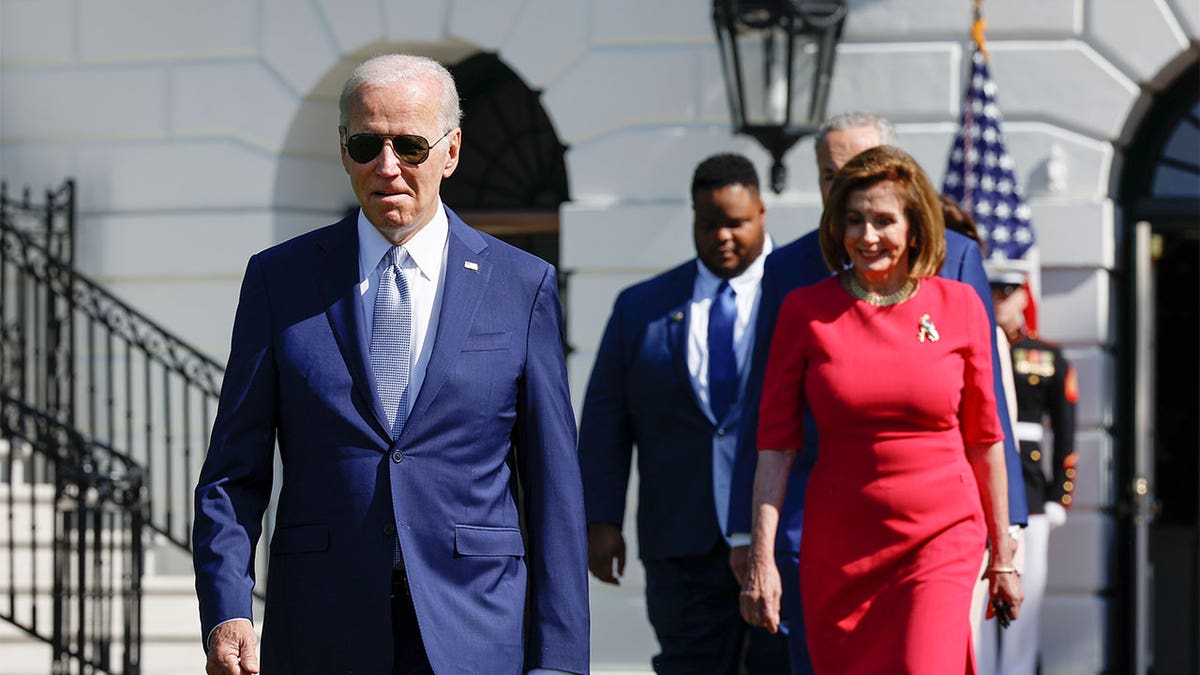
President Biden, CEO of SparkCharge Joshua Aviv and Speaker of the House Nancy Pelosi, D-Calif., arrive for a signing ceremony for the CHIPS and Science Act of 2022 on the South Lawn of the White House on Aug. 9, 2022, in Washington, D.C. (Chip Somodevilla/Getty Images)
Barron stressed that at the end of the day, the decision to deny the Eucharist to a Catholic is up to the individual's bishop. Asked what sorts of penalties he would implement in similar scenarios within his own diocese, Barron said he was not against withholding the Eucharist in principle.
"If someone is very publicly and scandalously standing athwart the church's teaching, yeah, I think that's classically what you'd say is grounds for that," Barron said. "Now, having said that principal, there's still the prudential judgment."
CLICK HERE TO GET THE FOX NEWS APP
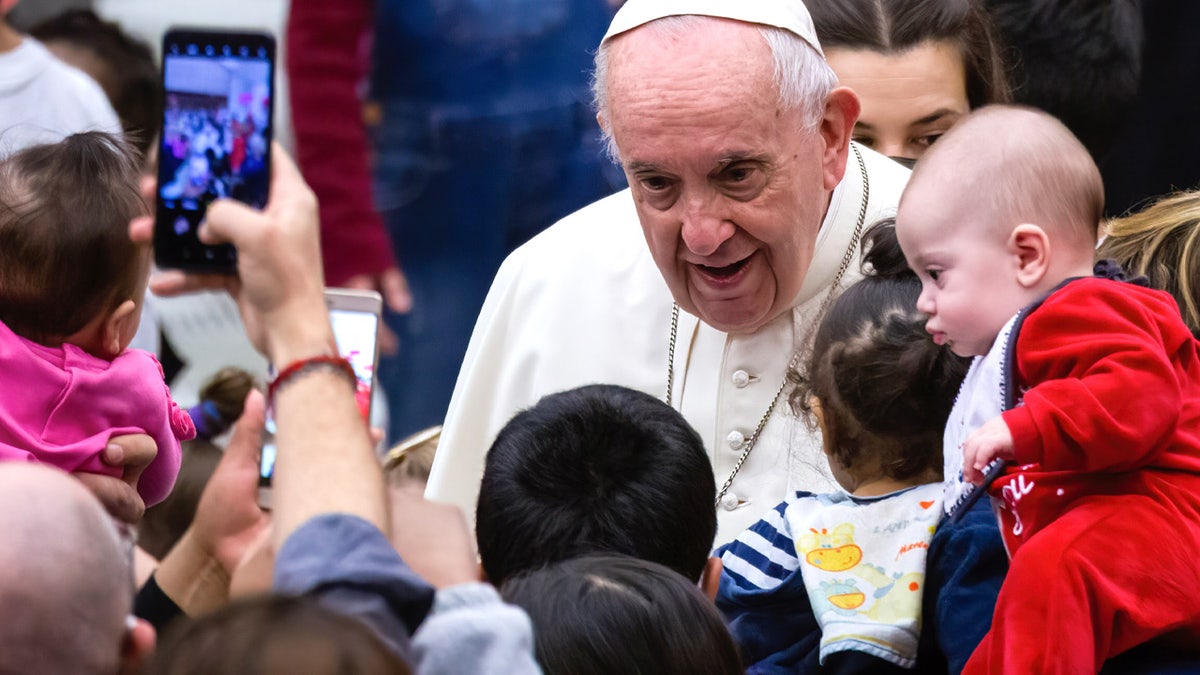
Pope Francis greets and blesses the children assisted by the Vatican's Santa Marta Pediatric Dispensary at the Paul VI Hall. (Stefano Costantino/SOPA Images/LightRocket via Getty Images)
Progressive Catholics and those on the left have decried the church's uniquely passionate fight against abortion. Critics say the Catholic Church has failed to take meaningful stands against political concepts on the right that go against the church's ethics — most notably, the death penalty.
While Catholic politicians who vote pro-choice often spark talks of penalties, the same cannot be said for pro-capital punishment Catholics.
"I've been in the bishops conference now for seven years, and we talk about all those things all the time. But I would still argue that abortion has a primacy," Barron said. "And it is the most pressing question when you compare, for example, capital punishment, which indeed is morally outrageous — the church stands against it. But just in terms of sheer numbers, you're looking at over 60 million abortions since Roe v. Wade."
"It's hard to avoid the conclusion that there's something uniquely terrible about this abortion issue," he concluded. "So I think it's the preeminent issue. Not the only one — but the preeminent issue."

